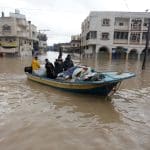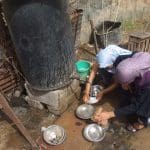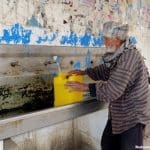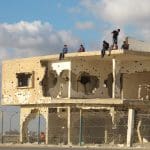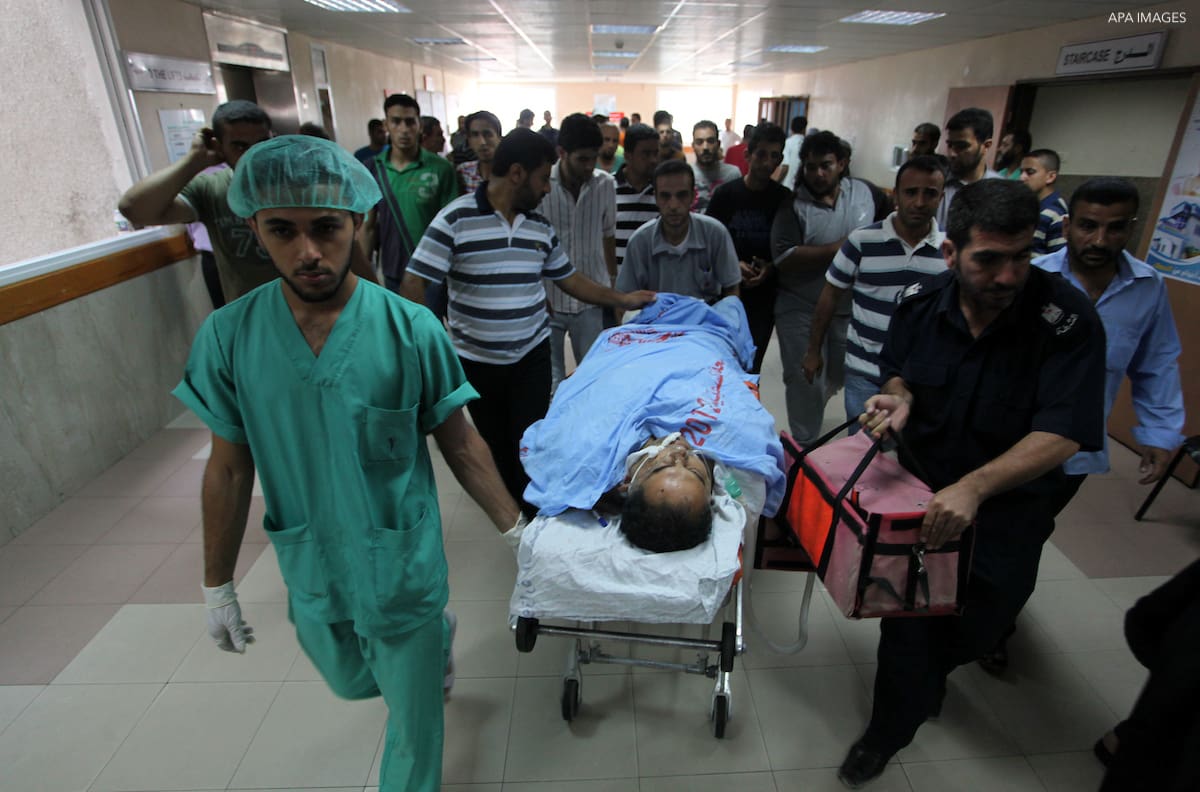
Executive Summary
The 1948 Universal Declaration of Human Rights recognizes the right to health and well-being, including access to health care, healthy living conditions, and the right for individuals to make decisions about their health care. However, for decades, political barriers have obstructed the Palestinian health system, impeding these protections.
Israeli and international approaches to the right to health render this right conditional, only to be granted once Palestinians acquiesce to what Israel considers an acceptable resolution to what has already been over 70 years of oppression and occupation. This has direct implications for Palestinian quality of life and mortality.
The Occupied Palestinian Territory’s (OPT) current health system, established in 1994 as a component of the Oslo Accords, is a fragmented sector. The quality of health care varies based on a facility’s ability to acquire resources and sustain access to utilities such as electricity and water.
Palestinians live 10 fewer years than Israelis on average and report maternal and infant mortality rates that are four to five times as high as Israelis. Israelis receive vaccinations that Palestinians typically do not, such as for chicken pox and pneumonia. Palestinian citizens of Israel also fare worse than the Jewish population, reporting higher rates of chronic diseases.
The blockade on the Gaza Strip has led to worse health outcomes there than in the West Bank, as well as a lower proportion of hospital beds, nurses, and doctors. The most basic supplies and medicines needed in Gaza are lacking, and this is generally due to political factors.
While specialized private facilities in the OPT often import advanced diagnostic equipment, many Palestinians cannot afford to pay for these services or the machines are nonfunctional due to difficulties obtaining permits for spare parts. Government hospitals may offer services to more citizens, but they also lack the resources to maintain or update the technology they import.
For Palestinians who wish to practice medicine, the politics of the occupation make it difficult. A small number of medical schools, as well as the separation of the West Bank and Gaza Strip, decrease opportunities for medical education. Medical brain drain is a real problem for the Palestinian population, as Palestinian physicians emigrate for better training or career opportunities.
In the West Bank, ambulances must contend with Israeli military checkpoints and other road closures and mobility restrictions. In the West Bank and Gaza Strip, the process required to attain a medical permit to receive advanced care in Israel or a surrounding state is complex and arbitrary.
Though international humanitarian law features robust protections for health care in conflict areas, Israeli forces continue to attack hospitals, ambulances, and medical staff in the OPT. The international community has been unsuccessful at preventing such attacks.
Palestinian governance in the OPT also plays a role in preventing access to health care. For example, in 2017, financial strain led the PA cabinet to cut a program that had provided health insurance to unemployed citizens since 2000. US funding cuts exacerbate the situation. In addition, of the PA’s $5 billion budget approved for 2018, only 9% was allocated for health. Infighting between Hamas and the PA has also led to poor health outcomes.
Only through addressing the fundamental inequities and everyday violence of Israel’s occupation can Palestinian health and access to health care truly improve.
Policy recommendations:
- The PA must allocate more resources for health care.
- The UN and other agencies must demand unadulterated access for all humanitarian goods to the Palestinians. The PA must also ensure that citizens, especially in Gaza, are provided the medicines and other goods they need to ensure health.
- An autonomous agency should be established that monitors PA activities and holds individuals accountable for corrupt practices.
- Strategies to minimize the need for patients to travel outside of the country are critical. Medical education within the OPT can reduce physician and nurse shortages with an emphasis on programs for Palestinians who wish to stay and practice within the territory. Palestinians in the diaspora can also be encouraged to provide training or clinical rotations in the OPT.
- Global actors should undertake a campaign pressuring Israel to overhaul its opaque medical permit system.
- Israeli authorities must justify every case of a Palestinian patient or ambulance denied passage at a checkpoint in a transparent system reviewed by an external inspector.
- All parties, from humanitarian agencies to states maintaining relations with Israel, must demand full and independent investigations into attacks on health care that are not led by the Israeli authorities.
Overview
The 1948 Universal Declaration of Human Rights recognizes the right to health and well-being, including access to health care, healthy living conditions, and the right for individuals to make decisions about their health care. However, for decades, political barriers have obstructed the Palestinian health system, impeding these rights and protections.1
Recent events such as the injury of more than 745 medical workers during Gaza’s Great March of Return, including the murder of medic Razan Al-Najjar by an Israeli sniper in June 2018, as well as drastic US funding cuts to institutions and organizations that supply or support health care for Palestinians, including East Jerusalem hospitals and the United Nations Relief and Works Agency for Palestine Refugees (UNRWA), are emblematic of a deeper problem. Israeli and international approaches to Palestinian human rights, such as the right to health, render these rights conditional: They are only to be potentially granted once Palestinians acquiesce to what Israel considers an acceptable resolution to what has already been over 70 years of oppression and occupation. While this problem affects all aspects of Palestinian existence, its application to Palestinian health has direct implications for quality of life and mortality.
This policy brief addresses how the occupation has decreased Palestinians’ ability to seek or practice health care. The weakness of Palestinian governance and the active de-development of Palestinian institutions in the post-Oslo era have led to human-made deficits in quality of and access to health care and health insurance. This has been accomplished via Israeli restrictions on movement and accessible services, such as its more than decade-long blockade on the Gaza Strip. The brief concludes by offering policy recommendations that can support Palestinians’ right to health within the current constrained circumstances.
Health and Health Care in the OPT
The Occupied Palestinian Territory’s (OPT) current health system, established in 1994 as a component of the Oslo Accords, is a fragmented sector comprised of the Palestinian Ministry of Health (MoH), NGOs, UNRWA, and private facilities. The quality of health care varies based on a facility’s ability to acquire resources and sustain access to utilities such as electricity and water. Inequality in access, exacerbated by financial and other barriers to care, such as uneven health insurance coverage and geographic segregation, has been a marker of the Palestinian health care system for decades.
Despite their limited health system, Palestinians report some of the better outcomes in indicators of life expectancy and maternal, infant, and child mortality rates when compared to other Arab countries. High OPT education levels and MoH efforts, however restricted, to ensure basic care such as vaccines are the likely drivers of these outcomes, coupled with broad social sector corruption and poor health care service delivery throughout the Middle East. At the same time, Palestinians live 10 fewer years than Israelis on average, including the settler population that inhabits the same territory. Palestinians report maternal and infant mortality rates that are four to five times as high as Israelis, and Israelis receive vaccinations, such as for chicken pox and pneumonia, that Palestinians typically do not. Even Palestinian citizens of Israel generally fare worse than the Jewish population, reporting higher rates of chronic diseases.
The blockade on Gaza has led to worse health outcomes there than in the West Bank, as well as a lower proportion of hospital beds, nurses, and doctors. Many medical shortages in Gaza have little to do with a lack of available resources and are instead a direct result of political factors. For example, outside of a limited amount of food or other humanitarian necessities, Israel generally does not allow the importation of concrete or other materials required to rebuild damaged infrastructure at medical facilities that were destroyed by Israeli attacks. Even importing necessary equipment is challenging, especially items deemed by Israel to be potentially threatening in Hamas’s hands, such as x-ray equipment or batteries used to back up hospital generators during power outages.
Palestinians live 10 fewer years than Israelis on average, including the settler population that inhabits the same territory Share on XThe lack of batteries coupled with low fuel stores and limitations imposed on fuel imports means that hospital staff must be judicious in their use of power. In September 2018, the director general of the Al-Shifa medical complex in Gaza City warned that electricity shortages were draining the fuel reserves the hospital used to power generators for patients undergoing dialysis, in need of surgery, or receiving intensive treatments. It is common to see several infants at Al-Shifa’s neonatal intensive care unit (NICU) clustered together in incubators meant for one. Gaza’s doctors report that at times they are even unable to wash their hands due to lack of water or electricity.
In 2018, Gaza City’s Durrah Hospital was forced to shut down its ICU and combine departments to maximize access to electricity, which at some points was just four hours per day. Nineteen other medical facilities in Gaza have had to close due to a lack of electricity and diminished fuel for generators.
The most basic supplies and medicines needed at any standard health care facility in Gaza are lacking, especially with an increase in trauma-related patients from the Great March of Return. Doctors across the OPT warn that catastrophic outcomes are possible as a result of medicine shortages, including outbreaks of antibiotic-resistant “superbugs,” especially when coupled with shortages of gloves, gowns, and disinfecting chlorine tablets. Six newborns in Gaza died in just the first two months of 2018 due to the unavailability of respiratory medication.
Even when there is funding for a high-end facility, political barriers persist. Donors recently raised millions of dollars for An-Najah National University Hospital in Nablus, the first and only university hospital in the OPT, with some of the most advanced medical equipment available. However, Israel has blocked the import of a PET/CT scanner used for cancer diagnosis for which funds have already been raised, citing fears of Palestinian “mishandling.” In addition, the Palestinian Authority (PA), which was slated to pay for the hospital’s operating costs, owes the project money due to its own funding shortfalls. With support from Turkey, Al-Sadaqa Hospital was slated to be built as a part of the Islamic University of Gaza, but has been delayed for years due to Israel’s blockade.
While specialized private facilities often manage to import advanced diagnostic equipment, many Palestinians cannot afford to pay for these services, or the machines are nonfunctional due to sporadic maintenance and difficulties obtaining permits for spare parts. Government hospitals may offer services to more citizens, but they also lack the resources to maintain or update the technology they import. A 2018 study from government hospitals in Gaza found that of the seven available CT machines in the besieged territory, several are out of service on a regular basis and only two hospitals had received Israeli permission to have the technology. A 2018 Physicians for Human Rights report states that this lack of upkeep turns hospitals into merely “transit stations for referral to other hospitals.”
A lack of trained providers, especially specialists, contributes significantly to poor health care and outcomes in the OPT. There are only four medical schools throughout the OPT. Six oncologists serve the entire West Bank, with a population of three million, with an additional seven in East Jerusalem. In Gaza, there are three. The smaller number of oncologists in the OPT translates to about 250 new cancer cases per oncologist. With less than double the population of the OPT, Israel reports 250 oncologists, for a rate of 116 new cancer cases per oncologist. States with populations similar in size to the OPT report comparable rates to Israel, such as Ireland, with 113 cases per oncologist.2
For Palestinians who wish to practice medicine, the politics of the occupation make it difficult. For example, the division in Al Quds University between the Abu Dis and East Jerusalem campuses led to a years-long administrative battle between the university and Israeli accreditation bodies regarding recognition of medical degrees. Though the case was eventually settled in court, as recently as 2016 30 nursing graduates filed a complaint with the state’s attorney general that the Israeli Education Ministry refused to recognize their degrees.
The separation of the West Bank and Gaza Strip has also decreased opportunities for medical education. Gaza’s Al-Azhar University established a medical studies department in 1999 as a branch of Al Quds University in East Jerusalem. Once safe passage between the territories was eliminated during the Second Intifada, so was the campus collaboration.
These difficulties lead to medical brain drain as Palestinian physicians emigrate for better training or career opportunities. Young doctors in Gaza may work 70-hour weeks to earn a mere $280 a month, and clinicians and maintenance workers may be unable to leave for training in new medical technologies or for other professional opportunities. Established doctors receive less than half their salaries due to PA sanctions. When Marwan Sadeq, a renowned heart surgeon, emigrated to work at a university hospital in Austria after two years of not receiving his salary, he said, “If I want to stay in Gaza, I would…turn from a cardiac surgeon into someone whose only concern is how to feed his children.” In 2018, locals in Gaza estimated that between 100 and 160 doctors and medical professors had left; of those, many will not return. In the OPT as a whole, a 2008 survey of higher education and health professionals found that around 30% wished to emigrate, primarily due to the political and security situation.
In the West Bank, ambulances must contend with Israeli military checkpoints and other road closures and mobility restrictions. A 2011 study found that 10% of pregnant women had been delayed at checkpoints every year from 2000 to 2007, resulting in 69 births at checkpoints, 35 infant deaths, and five maternal deaths. The media and NGOs have released multiple reports of patients dying after being delayed or blocked from passing checkpoints. Patients from the West Bank needing care in East Jerusalem may need to take a Palestinian ambulance to one checkpoint and then be transferred to an Israeli ambulance to continue the journey, while Palestinian patients who die in Israeli hospitals also must switch ambulances on their journey to be buried back in the West Bank. This is known as a “back-to-back” transfer, and 90% of ambulances entering East Jerusalem in 2017 were required to comply with this procedure.
The process required to attain a medical permit to receive advanced care in Israel or a surrounding state is complex and arbitrary. In Gaza, a physician refers any patient needing such care to the Service Purchasing Unit, where the application process for an Israeli entry permit begins. The permit may be refused at any point with no explanation, and even if approved, the patient’s family members, in some cases the parents of sick children, may not receive a permit to accompany them. Patients must go through the process again for follow-up appointments. In 2017, the World Health Organization (WHO) found that only 54% of patient applications from Gaza were approved, the lowest rate since the organization began collecting data in 2011. Fifty-four patients, primarily needing cancer treatments, died while awaiting security permits that year.
Patients from the West Bank needing treatment in Israel must go through a similar process, requiring a referral from the MoH along with a travel permit. Patients must also go through several checkpoints and switch vehicles to complete the journey. While these permits are granted more often than in Gaza, they are not guaranteed. In 2016, 20% of Palestinians from the West Bank applying for permits to access a hospital in East Jerusalem or Israel were denied. The PA has also approved fewer vouchers guaranteeing payment for these patients’ treatment than in past years, a necessary component to apply for a travel visa from Israel. Thirteen patients died in 2017 while waiting for their voucher approval, six of them children.
Recently, the PA has said it will no longer refer Palestinian patients to Israeli hospitals, accusing Israel of overcharging for medical care and deducting those funds from taxes it collects on behalf of the PA. The PA noted it will continue to send patients from the West Bank to East Jerusalem hospitals, and will also work to send patients to hospitals in neighboring states such as Jordan and Egypt.
While the principal reason behind the dire health care situation in the OPT is the Israeli occupation, Palestinian governance in the West Bank and Gaza Strip also plays a role Share on XThough international humanitarian law features robust protections for health care in conflict areas, Israeli forces continue to attack hospitals, ambulances, and medical staff in the OPT. The international community has been unsuccessful at preventing such attacks. Little action follows repeated UN resolutions and pleas for assistance by heads of agencies such as Médecins Sans Frontières and the International Committee of the Red Cross. In 2017, the OPT experienced 93 attacks on health care, second only to Syria. In almost all instances, the Israeli military’s response is that the incident was accidental or justified due to terrorist activity.
High-profile cases such as that of Razan Al-Najjar and Tarek Loubani, a Canadian-Palestinian doctor who Israeli forces shot in the leg in May 2018 on the Gaza border, have brought these issues back into the public eye. Human rights groups have also recently documented multiple cases of violence against ambulances and medical workers, as well as raids on health facilities.
During periods of active violence, such as the 2014 war in Gaza, hospitals may be directly bombed. After bombing the Shuhada al-Aqsa Hospital in Gaza, where five people, including three children, were killed, the Israeli authorities justified the attack by claiming there were suspected munitions “stored in the immediate vicinity of the hospital.” The El-Wafa Hospital, with the only dedicated rehabilitation center in Gaza, was obliterated in the same war. Due to restrictions on imports of building materials, the hospital remains destroyed and hospital staff have been providing care by sharing space with a geriatric hospital.
The Role of Local Governance
The principal reason behind the dire health care situation for Palestinians in the OPT is the Israeli occupation. However, Palestinian governance in the West Bank and Gaza Strip also plays a role.
In 2017, financial strain led the Palestinian cabinet to cut a program that had provided health insurance to unemployed citizens since 2000. With an unemployment rate of nearly 30% throughout the OPT, an estimated 250,000 people benefited from the program. In Gaza, families who used to be able to pay for care at private facilities or pay for public health insurance have resorted to applying for exemptions from health insurance payments that cost less than $300 per year for a family of four. Nearly 70,000 such requests were being processed as of February 2018. Data from that year shows that approximately 40% of health financing in the OPT is paid out-of-pocket. As poverty and unemployment rise, especially in Gaza, and the PA contends with constant cuts to aid and strangulation on development, strain on the public health insurance system will grow.
US funding cuts exacerbate the situation. Stakeholders such as the WHO and Medical Aid for Palestinians have indicated they will fill in some of the gaps created by US cuts, but the PA must shift its thinking about its priorities toward its people if the benefits of aid are to reach them.
Of the PA’s $5 billion budget approved for 2018, 30-35% went to the security sector, while only 9% was allocated for health. Of the total budget, $775 million (15.5%) was slated to come from foreign aid, generally divided into security support, funding for UNRWA, and money for USAID projects. Even as the US has made drastic aid cuts, affecting millions of Palestinians’ ability to access medical care, education, and food, Israeli and US officials are scrambling to preserve one piece of the aid package: security. What began as a “security first” arrangement is morphing into a “security only” strategy.
The PA is also facing a growing legitimacy crisis, with 80% of Palestinians in the OPT recently surveyed reporting the belief that PA institutions are corrupt, and more than half (53%) reporting that the PA has become a burden on the Palestinian people. Weak oversight, bribery, embezzlement, nepotism, and other forms of corruption are rampant in social services such as health care. This corruption does not end at the state level. For instance, it is well known that bribes facilitate referrals for medical permits, especially in the Gaza Strip.
Palestinians cannot wait for a political agreement before they are afforded access to safe, high quality, and reliable health care Share on XInfighting between Hamas and the PA has also led to poor health outcomes. While the PA has accused Israel of leveraging Palestinian social services to force negotiations, in Gaza it is the PA that leverages its position against Hamas. In January 2018, 40% of essential pharmaceuticals in Gaza, a supply that the PA is responsible for maintaining, were depleted. In 2018, the Health Ministry in Gaza along with Palestinian human rights groups warned that medication shortages were at perilous levels and urged the PA’s MoH to “guarantee the free and secure flow” of needed medical goods to Gaza. In response, the PA sent 38 trucks with $4 million in goods. However, sporadic assistance cannot make up for a health system that has long been crippled due to a lack of personnel and goods.
While Israel controls the Erez crossing on Gaza’s northern border, Egypt controls the Rafah crossing in the south. Egypt has also significantly limited who and what is allowed through since the blockade began. While humanitarian cases can apply for permits to cross, in practice there have been many years when the crossing has been closed almost every day, even to medical cases. In 2017, for example, Rafah was only open for 36 days total, preventing all but 1,400 medical patients from crossing. Despite the more frequent reopening of the border since 2018, a waiting list of tens of thousands hoping to cross remains. While Hamas controls no border crossings, it has also leveraged its power for political reasons, including barring entry of goods sent by the Israeli military, such as IV fluids, disinfectants, and fuel, accusing Israel of “trying to improve its black image.”
Strategies to Improve Health Care
With the window for a realistic and just peace process as narrow as it has been in decades, Palestinians cannot wait for a political agreement before they are afforded access to safe, high quality, and reliable health care. There are several areas where action can be immediately taken to support this access.
1. The PA must reject its focus on funding security to funding health by allocating more resources for health care. Its dialogue with donors must be strategic and should include 1) an emphasis on core priorities shared by stakeholders; 2) a focus on building and retaining domestic resources; and 3) an approach that minimizes system inefficiencies and inequities. In this way, the most urgent need – ensuring the robustness of existing medical facilities and encouraging expansion – will become a priority. These strategies can also help the system transcend its current state of responding only on an emergency basis, which impedes it from building capacity that improves population health on measures beyond trauma-related injury and mortality.
2. The UN and other humanitarian agencies must demand full and unadulterated access for all humanitarian goods to the Palestinians. The PA must also put the lives of Palestinians above political machinations and ensure that citizens, especially in Gaza, are provided the medicines and other goods they need to ensure health. For example, the PA can work to exempt medical goods from the Paris Protocol, which ties up the import of needed medical supplies for months as importation is dependent on permits and other forms of clearance.
3. An autonomous agency should be established that monitors PA activities and holds individuals to account for corrupt practices, including in the MoH. Civil society, the media, and local and international advocacy groups should also pressure PA agencies to yield tangible outcomes, such as maintaining stores of essential medications and advocating to reduce the use of “back-to-back” ambulance transfers for patients needing to enter East Jerusalem or Israel.
4. Strategies to minimize the need for patients to travel outside of the country to access care are critical. Medical education within the OPT can reduce physician and nurse shortages with an emphasis on programs for Palestinians who wish to stay and practice within the territory. The MoH, along with organizations such as the International Medical Education Trust, have developed opportunities for e-learning, telemedicine, and specialist training to overcome barriers to movement. Curriculum at some medical schools has integrated technological innovations such as clinical simulations, computer-based tutorials, and video conferencing to connect Palestinian health students and workers with each other and colleagues around the world. These initiatives should be further developed. Palestinians in the diaspora can also be encouraged to provide training or clinical rotations in the OPT to help restore a functional community of Palestinian medical personnel.
5. Global actors should undertake a campaign pressuring Israel to overhaul its opaque medical permit system. Israeli authorities should give an explanation in the event of a permit denial, as well as the opportunity for patients to appeal. Permits should be reviewed efficiently as well. In early 2019, the Israeli human rights organizations Gisha, Physicians for Human Rights, and HaMoked requested that Israel approve medical permit requests more quickly, but the High Court of Justice rejected the petition. This type of effort should continue in line with the WHO position that Israel is obligated to “enable undelayed access 24/7, for all Palestinian patients requiring specialized health care.” Egypt should also allow more humanitarian crossings at the Rafah border in Gaza.
6. Israeli authorities must justify every case of a Palestinian patient or ambulance denied passage at a checkpoint in a transparent system reviewed by an external inspector. A delay or denial at a checkpoint that results in death or disability should be investigated and treated as a potential violation of international humanitarian and human rights law, not a logistical challenge.
7. All parties, from humanitarian agencies to states maintaining relations with Israel, must demand full and independent investigations into attacks on health care that are not led by the Israeli authorities. While attacks on health care are not specific to the OPT, it is significant that the incidence is so high in a situation that is not as defined by active violence, such as in Syria, and that the primary perpetrator is a state actor welcomed by the global community. This may allow for opportunities for unique pressure on Israel to prevent these types of incidents. Moreover, penalties should be exacted on those who transgress the protections afforded to medical infrastructure and personnel.
Though such actions would undoubtedly help support the Palestinian health system and health outcomes, at base the PA must commit to contend with the underlying political causes limiting Palestinians’ access to proper health care. A health care system should not be at the mercy of a military occupier or dependent on external aid and the mercurial motivations and priorities of donors. As long as the Palestinian “quasi-state” model exists, aid dependency for social services is likely. This is an unsustainable and unjust model for a health system. Only through addressing the fundamental inequities and everyday violence of Israel’s occupation can Palestinian health and access to health care truly improve.
- To read this piece in French, please click here. Al-Shabaka is grateful for the efforts by human rights advocates to translate its pieces, but is not responsible for any change in meaning.
- Cancer is the second leading cause of death in the OPT, and many more cases likely go undiagnosed due to the lack of specialized laboratories for oncology as well as a limited number of diagnostic and imaging facilities, especially for Palestinians unable to receive a medical permit for treatment elsewhere. Only six government hospitals, split between the West Bank and Gaza Strip, are equipped to treat cancer patients.







